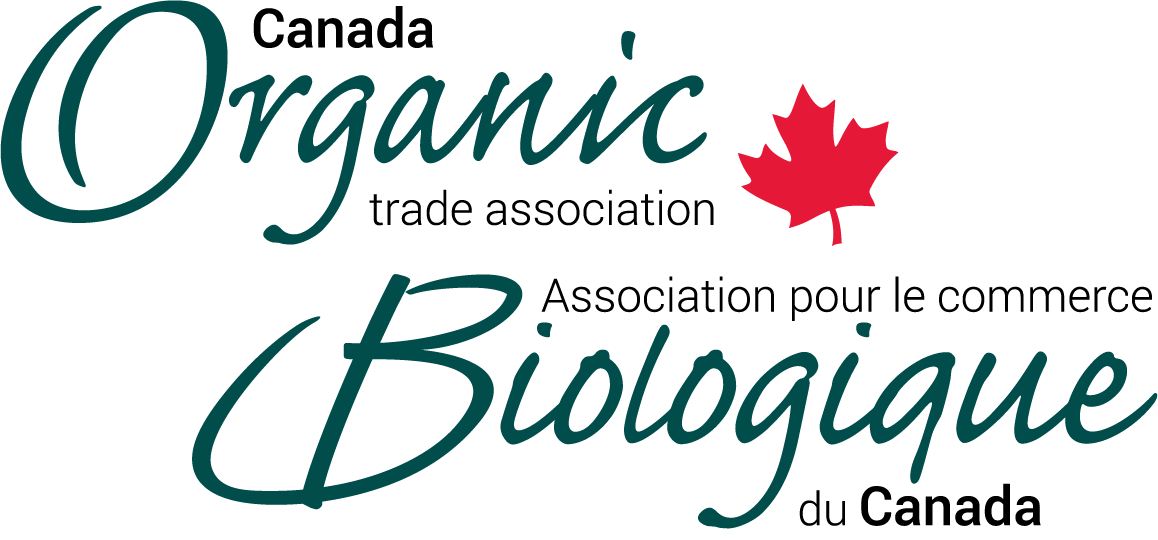TORONTO, ON (Marketwired - September 13, 2017) - The Canada Organic Trade Association is today releasing new organic products consumer and sales data in advance of Organic Week (September 16 - 24). The new data shows that the organic market is rapidly expanding. Two in three Canadians (66%) are spending at least some of their weekly grocery budget on organic items, up a staggering 10 points from 56% in 2016. *
The data released today is a sample of an extensive organic sector report to be released later this fall.
What organic products are Canadians buying?
Of the Canadian grocery shoppers who purchase organic, fruit and vegetables remains the most purchased category (76%, -1 point from 2016). This is well ahead of meat or poultry (28%, +4 points from 2016) or dairy products (27%, +1 point from 2016).
According to data supplied by the Nielsen Company, organic pre-packaged foods account for 1.6% of total pre-packaged food sales in Canada. This category showed 7% growth from 2016 to 2017.
Where are Canadians buying organic products?
The regular grocery store or supermarket (80%, +5 points from 2016) remains the most popular destination for buying organic foods, followed by mass retailers (39% in 2017 and 2016), and natural health stores (24% in 2017 and 2016).
Who is buying organic products?
Millennials are key drivers of the organic market with 83% purchasing organic food and beverages -- the highest of any generation. Households with children are also more likely to buy organic than households without -- 19% of the weekly grocery bill for households with children goes toward organic items, compared to 12% for those with no children.
Why are Canadians buying organic?
More than half (55%) now say their decision to buy organic products is influenced by recommendations from a health professional, an 11-point increase from 44% in 2016.
Trust in organic regulations
The Canada Organic logo, introduced in 2009 and regulated by the Canadian Food Inspection Agency, has been in place for just eight years and Canadian consumers are steadily becoming more familiar with the logo and what it stands for.
72% of Canadians (compared to 62% in 2016) have some familiarity with the logo. Also, a higher percentage of Canadians associate the logo with several key aspects of organic certification, including reducing their exposure to pesticides (48%, +9 points from 2016), being good for the environment (36%, +4 points), non-GMO (34%, +8 points), and having strong standards (30%, +8 points).
There is however, still room to improve. Asked to rate the trustworthiness of various claims about food, Canadians remain most likely to trust "Made in Canada" (55%, +2 points from 2016) and "Local" (54%, +1 point) over "Canada Organic certified" (44%, +5 points). This is an opportunity for promoting Canadian made organic goods that can tap into Canadians' trust in these additional claims.
Spokesperson quotes
"Organic is the fastest growing category in agriculture in Canada and has consistent sales growth across all product categories. Canadians are demanding more and more variety in their organic purchases which is driving the market to keep up with this next generations' desire for more organic!" Tia Loftsgard, executive director, Canada Organic Trade Association
"We live in an age of transparency where consumers have a heightened interest in the food they eat. We want Canadians to love and feel good about the products they buy from us, and to trust that they are sourced responsibly and ethically," said Kathlyne Ross, Vice President, Food Product Development, Loblaw Companies Ltd. "Sixteen years ago we launched PC Organics to provide Canadians with accessible, reasonably priced organic foods. Since that time the category has grown exponentially and PC Organics now has more than 250 different products in a wide range of categories, ranging from produce and pasta to baby food and yogurt."
"Despite declining sales in the cereal category overall, Nature's Path continues to see growth from our core products proving that consumers are looking for and demanding organic breakfast options," explained Ryan Labong, Nature's Path Foods, VP Canada and Global Customers. "People are turning to organic cereal, not only at breakfast time, but as a healthy and delicious snack throughout the day."
Organic Week Sponsors
Thank you to our Organic Week sponsors: PC Organics, Nature's Path, Clif Bar, Amy's, Annie's, Alive Publishing, Big Carrott Natural Food, Canadian School of Natural Nutrition, du Breton, Eco-Cert, Ethical Bean Coffee, Fromagerie L'ancetre, Fruit d'Or, Lantic INC., Left Coast Naturals, Manitoba Harvest, McCormick Gourmet, Billy Bee, Club House, Mike & Mike's, Mumm's Sprouting Seeds, Organic Garage, Organic Meadow, Pacific Organic Seafood Association, Pro-Cert, QAI (Quality Assurance International Organic Certification), The Homemade Organics Company, UNFI Canada, Wholesome Sweeteners, Yorkshire Valley Farms, and Field Farm Marketing.
About the Canada Organic Trade Association
The Canada Organic Trade Association is the membership-based association for the organic sector in Canada: representing growers, processors, certifiers, provincial farmers' associations, importers, exporters, retailers and others throughout the organic value chain. COTA's mission is to promote and protect the growth of organic trade to benefit the environment, farmers, the public and the economy. COTA brings together the diversity of Canada's organic sector: from farmer and processor to retail, including food products, fibre and textiles, personal care, and emerging sectors such as organic aquaculture. Visit ota.com/canada-ota.
* An online consumer research study using the Ipsos I-Say panel was commissioned by the Canada Organic Trade Association. 1,002 participants aged 18 and over completed the poll online between May 30 and June 4, 2017. Quotas and weighting were employed to ensure that the sample's composition reflects the overall population according to census information. The results are accurate to within +/-3.5 percentage points, 19 times out of 20, of what the results would have been had all Canadian adults been polled.
